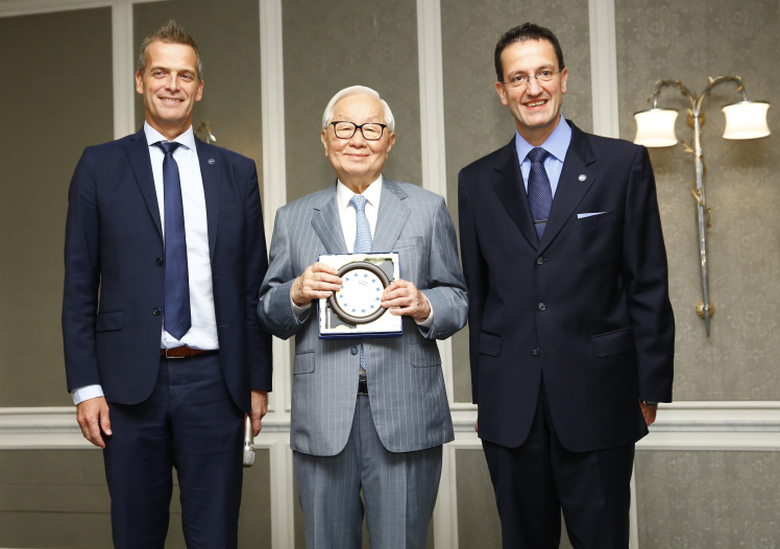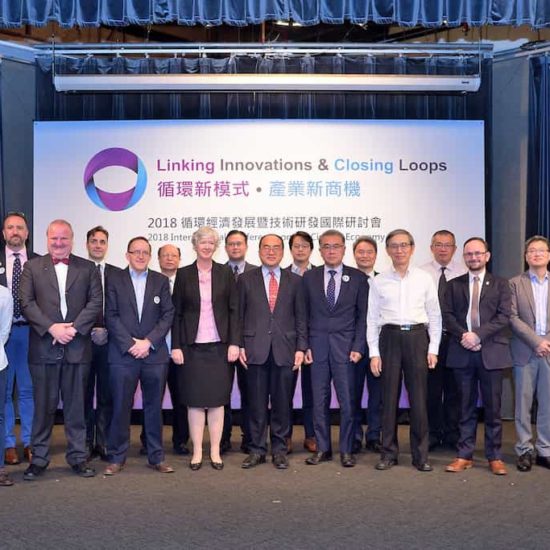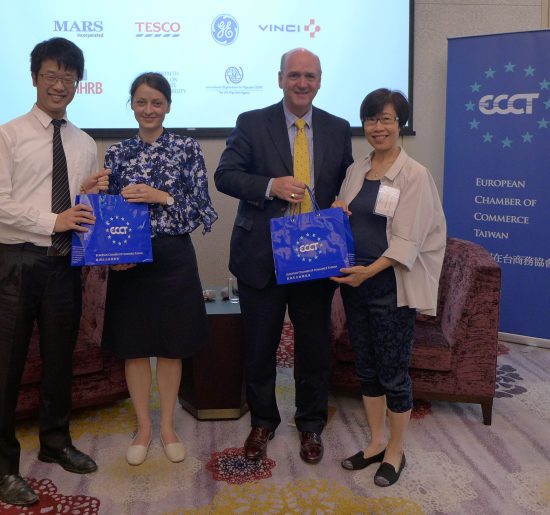Lunch with Morris Chang

The ECCT hosted a Premium Event lunch with guest speaker Dr Morris Chang, Founder of Taiwan Semiconductor Manufacturing Company (TSMC). The lunch was held just a week after Dr Chang had formally retired as chairman of TSMC, after leading the company since its founding in 1987. As the founder of TSMC, he pioneered the pure play semiconductor foundry model and has led his company through multiple phases of development to become the undisputed global leader today. At the lunch, Dr Chang gave a speech which provided some insights on a several topics after which he answered questions from the audience of over 100 ECCT members and guests.
On the subject of innovation, Dr Chang said that there is no single formula for innovation. According to the dictionary definition, innovation means to make changes and do something in a new way. He emphasised the two verbs 'make' and 'do', which he pointed out are very different from mere thinking. He noted that he attends many dinner parties and other occasions where he hears many ideas, most of which are not enforceable or practical. Innovations can be either big or small and can apply to both business and personal life. While Dr Chang's development of the pure play semiconductor foundry model was clearly his most successful business innovation, he cited his personal innovation decision to start exercising at the age of 50 as something that had had a major impact on his health since then.
He noted that some innovations are not always good and can sometimes result in losses. TSMC has adopted a rule to reward successful innovation, according to the level of success generated from it. However, at the same time, the company has a rule to never punish unsuccessful innovation, in order to encourage people to explore and try out new ideas. While TSMC has had much success in innovation, he admitted that initiatives had not always borne fruit. He cited an example where he had personally approved an alternative research method at a cost of US$50 million that turned out to be unsuccessful.
On the subject of strategy, he said that strategy is just as important as execution. Quoting his own words published from an interview he did with Fortune Magazine, he said that strategy without execution is futile and execution without strategy is aimless. He noted that there is too much emphasis nowadays on execution and not enough on strategy.
On the subject of Moore's law, which predicted back in 1965, that semiconductor capacity would double every two years, Chang said he believes that it would continue, although at a slightly slower pace, for approximately 10 more years. He said that he was confident that TSMC would successfully produce the next generation of 5 nanometre (nm) microchips by 2020, 3nm by 2022 or 2023 and 2nm by 2025.
On the subject of the future of the semiconductor industry, he noted that semiconductors had changed millions of people's lives. He cited for example the ubiquitous presence of smart phones, which depend on a variety of microchips, and their use in providing commercial services, entertainment and social networking to connect people. He said that semiconductors have become as essential to modern life as cement and steel are to the construction industry. Moreover, given their growing use in so many applications, he predicted that the semiconductor market will grow faster than the global economy, at about 5% per year, while innovative companies like TSMC will grow even faster.
In the Q&A session, on a question about China's semiconductor industry, Chang said that, while China's industry will continue to develop, so too will Taiwan's, which is why he believes that TSMC will maintain a lead of 5-6 years over Chinese players. He made the point that making progress does not depend solely on spending money. It also depends on knowledge, experience, talent and execution.
On a question about which is better, a government-directed or market-driven approach to development, Chang said he believe unreservedly in the free market system for developed economies. However, for undeveloped or developing countries government-driven programmes can be useful initially.


